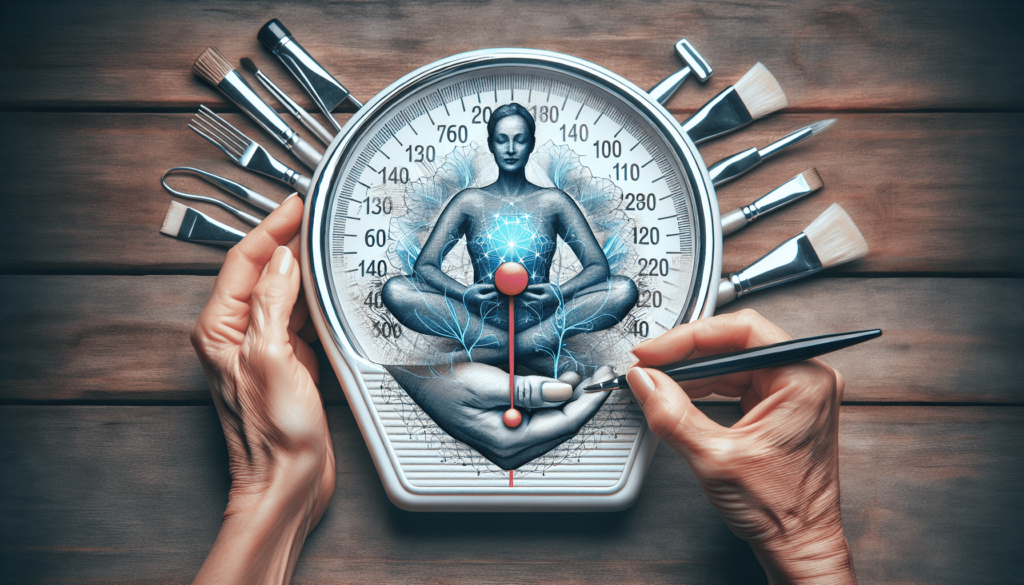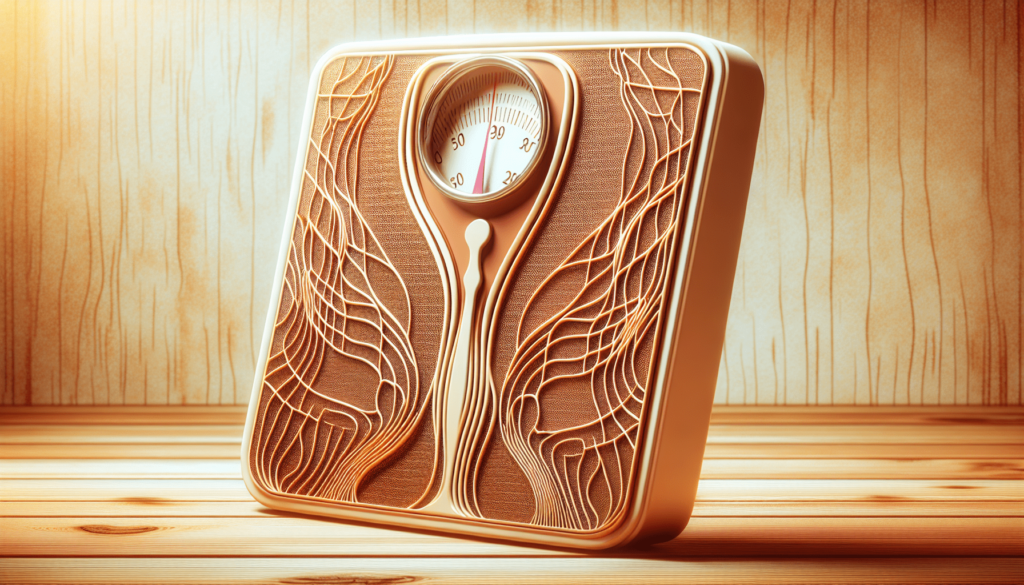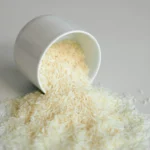Are you curious about how menopause can affect your weight? Look no further! In this article, we will take a closer look at the impact of hormonal changes, specifically during menopause, on your body weight. Hormonal fluctuations can lead to significant changes in appetite, metabolism, and body composition. We will explore the science behind these changes, as well as provide some practical tips to help you manage your weight during this stage of life. So, grab a cup of tea and let’s dive right in!

This image is property of pixabay.com.
In This Article
ToggleOverview of Menopause
Menopause is a natural phase in a woman’s life that signifies the end of her reproductive years. It is defined as the permanent cessation of menstrual periods, usually occurring between the ages of 45 and 55. During this phase, a woman’s body undergoes various hormonal changes, which can have a significant impact on her overall health and well-being. One of the common concerns that women face during menopause is weight gain. In this article, we will explore the hormonal changes that occur during menopause, factors contributing to weight gain, the impact of weight gain on health, strategies for managing weight, common weight management challenges, the role of diet and physical activity, and addressing emotional and psychological factors in weight management.
Hormonal Changes during Menopause
During menopause, there is a decline in estrogen levels, which is the primary female sex hormone. Estrogen plays a crucial role in regulating various bodily functions, including metabolism. As estrogen levels decrease, it can lead to changes in other hormones as well, such as an increase in luteinizing hormone (LH) and follicle-stimulating hormone (FSH). These hormonal fluctuations can have an impact on metabolism, leading to weight gain.
Factors Contributing to Weight Gain during Menopause
Several factors can contribute to weight gain during menopause. Firstly, age plays a significant role as there is a natural decline in metabolic rate as women get older. This decline in metabolic rate makes it easier to gain weight and harder to lose it. Additionally, changes in body composition occur, with a decrease in muscle mass and an increase in fat mass. Reduced physical activity is another factor, as women tend to become less active with age, which can contribute to weight gain. Furthermore, changes in diet and eating patterns, such as increased calorie intake or a shift towards more unhealthy food choices, can also contribute to weight gain during menopause. Lastly, psychological factors, including stress, emotional eating, and hormonal fluctuations, can influence weight gain during this phase.
Impact of Weight Gain on Health during Menopause
Weight gain during menopause can have various impacts on a woman’s health. It increases the risk of developing chronic diseases such as type 2 diabetes, cardiovascular disease, and certain types of cancer. Excess weight gain can also have detrimental effects on bone health, putting women at a higher risk of osteoporosis and fractures. Moreover, weight gain can negatively affect cardiovascular health, leading to increased blood pressure, elevated cholesterol levels, and an increased risk of heart disease.

This image is property of pixabay.com.
Strategies for Managing Weight during Menopause
Effective weight management strategies during menopause involve a holistic approach focusing on healthy eating habits, regular physical activity, strength training, mindful eating, stress management, getting enough sleep, and in some cases, hormone replacement therapy (HRT). Adopting a balanced and nutritious diet is essential, including a variety of fruits, vegetables, lean proteins, whole grains, and healthy fats. Regular physical activity, such as aerobic exercises, can help boost metabolism and promote weight loss. Incorporating strength training exercises can help preserve and build muscle mass, which aids in maintaining a healthy weight. Mindful eating practices, such as paying attention to hunger and fullness cues, can prevent overeating. Managing stress levels through relaxation techniques and ensuring adequate sleep are also crucial in weight management during menopause. In some cases, hormone replacement therapy may be considered under the guidance of a healthcare professional.
Common Weight Management Challenges during Menopause
Women often face challenges in managing their weight during menopause. One of the common challenges is the difficulty in losing excess weight. Due to hormonal changes and a decline in metabolic rate, it may be harder for women to shed those extra pounds. Changes in body shape are also a concern, as menopausal weight gain tends to accumulate around the waistline, increasing the risk of abdominal obesity. Emotional and psychological factors, including body image issues and self-esteem, can also contribute to weight management challenges. Furthermore, managing food cravings, especially for high-calorie and sugary foods, can be a struggle for women going through menopause.

The Role of Diet in Managing Weight during Menopause
Diet plays a crucial role in managing weight during menopause. It is important to focus on balanced nutrition and include a variety of food groups to meet the body’s needs. A recommended macronutrient ratio is about 45-65% of calories from carbohydrates, 20-35% from fats, and 10-35% from protein. Including dietary fiber from sources such as whole grains, fruits, and vegetables can aid in weight management by promoting satiety and regulating blood sugar levels. It is also essential to choose nutrient-dense foods, which provide essential vitamins and minerals without excess calories. Limiting the intake of alcohol and caffeine is advised as they can interfere with sleep, metabolism, and overall health.
Physical Activity and Exercise for Weight Management during Menopause
Regular physical activity and exercise are vital for weight management during menopause. Engaging in regular aerobic exercises like brisk walking, jogging, swimming, or cycling can help burn calories and promote weight loss. The American Heart Association recommends aiming for at least 150 minutes of moderate-intensity aerobic activity or 75 minutes of vigorous aerobic activity per week. Additionally, incorporating strength training exercises using weights or resistance bands is important to build and maintain muscle mass, as it contributes to a higher metabolic rate. Flexibility and balance exercises, such as yoga or tai chi, are also beneficial for overall well-being.

Addressing Emotional and Psychological Factors in Weight Management during Menopause
Addressing emotional and psychological factors is crucial for successful weight management during menopause. Body image and self-esteem can significantly impact a woman’s relationship with food and her perception of her own body. Practicing self-acceptance, positive self-talk, and seeking professional support, such as counseling, can help improve body image and self-esteem. Managing stress and emotional eating is also important. Engaging in relaxation techniques, such as deep breathing or meditation, can help reduce stress levels and prevent emotional eating. Creating a support system of friends, family, or support groups can provide encouragement and accountability on the weight management journey.
Conclusion
In conclusion, menopause brings about hormonal changes that can impact weight and body composition. Understanding the factors contributing to weight gain, the potential impact on health, and implementing effective strategies for weight management are crucial during this phase. Proactive measures such as healthy eating habits, regular physical activity, strength training, mindful eating, stress management, and sufficient sleep play a vital role in managing weight during menopause. It is important to focus on overall health and well-being, taking into consideration the unique challenges that women may face during this transition. By adopting a comprehensive approach, women can navigate the changes of menopause while maintaining a healthy weight and promoting optimal health.
Related posts:
 Understanding the Impact of Genetics and Metabolism on Weight Loss
Understanding the Impact of Genetics and Metabolism on Weight Loss
 Understanding the Impact of Diabetes on Pregnancy: Mother and Child Concerns
Understanding the Impact of Diabetes on Pregnancy: Mother and Child Concerns
 Estroven Weight Management: A Natural Solution for Menopause Symptoms and Weight Control – 30 Caplets
Estroven Weight Management: A Natural Solution for Menopause Symptoms and Weight Control – 30 Caplets
 Weight Loss and Wellness Bracelet: Volcanic X Slimming Hematite Bracelet with Leather Braided and Obsidian Menopause Support
Weight Loss and Wellness Bracelet: Volcanic X Slimming Hematite Bracelet with Leather Braided and Obsidian Menopause Support
 Reclaim Your Comfort: femMED Menopause Relief – Formulated by Canadian Doctors to Safely Relieve 12 Menopausal Symptoms
Reclaim Your Comfort: femMED Menopause Relief – Formulated by Canadian Doctors to Safely Relieve 12 Menopausal Symptoms
 Menopause Relief Jewelry Set for Women: Lymphatic Drainage Bracelet, Arthritis Pain Bracelet, and Rhinestone Link Bracelet – Perfect Gifts for Mom and Friend
Menopause Relief Jewelry Set for Women: Lymphatic Drainage Bracelet, Arthritis Pain Bracelet, and Rhinestone Link Bracelet – Perfect Gifts for Mom and Friend











No comment yet, add your voice below!